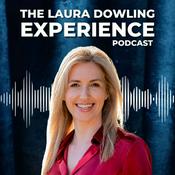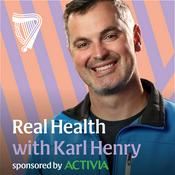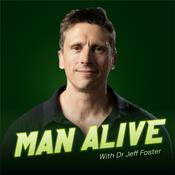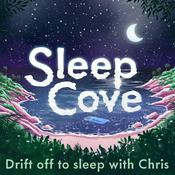122 episodes

Episode 122: Eating at a Buffet
21/10/2025 | 9 mins.
In this chat, I’m sharing my go-to strategies for tackling buffets on holiday without feeling guilty or going overboard. It’s all about staying balanced and making intentional choices.I talk about how to build a satisfying plate, why protein’s your best friend for keeping energy up, and some simple, practical tips so you can enjoy every meal and still feel good about your choices.Time Stamps:00:00 Introduction to Buffet Strategies05:07 Building a Balanced Plate at BuffetsClick me for show notes!

Episode 121: Lose fat, gain muscle
10/10/2025 | 14 mins.
I was chatting about one of the trickiest goals in nutrition: trying to lose fat and build muscle at the same time, also known as recomposition.Here’s the thing. It can be done, but it’s not easy. You need to be really intentional with your training, nutrition, and recovery. It’s not about bulking and cutting at the same time; it’s more of a careful balancing act.A big factor is your training age, meaning how long you’ve been lifting. If you’re new to resistance training, you can usually pull this off more easily. If you’ve been training for years, progress will be slower and harder to notice, which is why tracking multiple metrics (not just the scale) is so important.I also talked about how key proper nutrition and strength training are if you’re chasing recomposition. You can’t outsmart the basics.At the end of the day, I just encourage people to think carefully about whether aiming for both goals at once makes sense for them. It’s a slower process than focusing on fat loss or muscle gain alone, but if you’re patient and consistent, it can absolutely work.Time Stamps:00:00 The Holy Grail of Fitness Goals05:25 The Importance of Training Age10:32 Tracking Progress in RecompositionClick me for show notes!

Episode 120: How I Plan My Nutrition
03/10/2025 | 10 mins.
In this episode, I’m sharing my go-to strategies for making meal planning way less of a headache. I’ll walk you through how I stack habits together so planning feels automatic, how I use tech to make the process smoother, and why mapping out the whole week (yep, weekends too) is a game changer. I’ll also break down simple ways to save time with online shopping and keep your plan flexible without dropping the ball. These are the same things I use myself and with clients, and my goal is to give you a bunch of practical tips you can steal to make meal planning less stressful and way more doable.Time Stamps:00:00 Introduction to Weekly Planning05:27 The Benefits of Online Grocery ShoppingClick me for show notes!

Episode 119: Best calorie tracking apps
26/9/2025 | 11 mins.
I get asked all the time about calorie counting apps. What’s the “best” one? Honestly, it’s not about which app is the most accurate. The best app is the one you’ll actually stick with.I’ve played around with the big names like MyFitnessPal and Chronometer. They both have their pros and cons, different features and different vibes, but the key is making sure you’re cross-checking the data and not just blindly trusting it.Then there are the newer AI-driven ones like Carbon and MacroFactor. They’re pretty cool because they’ll actually adjust your targets for you based on how you’re tracking, instead of you having to figure it all out yourself.At the end of the day, my goal isn’t to push one app over another. It’s to help you find the one that fits you, your lifestyle, your preferences, your level of patience with tracking. Because the “right” app isn’t the fanciest or the most high-tech one. It’s the one you’ll actually use consistently.Time Stamps:00:00 Introduction to Calorie Counting Apps05:18 Chronometer: A Detailed Look10:26 Conclusion and Final ThoughtsClick me for show notes!

Episode 118: Do you really need electrolytes?
18/9/2025 | 11 mins.
I’ve been noticing electrolyte supplements popping up everywhere lately, so I wanted to chat about them. There’s a lot of hype, but also a fair bit of misunderstanding. Most people don’t actually need electrolyte powders or fancy drinks, if you’ve got a balanced diet and you’re drinking enough fluids, you’re usually covered.Where things can go wrong is when people overdo it, especially with sodium. That can actually cause more harm than good.Now, I’m not saying electrolytes are useless. There are definitely times when they make sense, like if you’re doing long, sweaty workouts, spending hours in the heat, or you’ve got higher needs for medical reasons. But for the general population? You’re probably fine without them.Bottom line: before you jump on the supplement bandwagon, take a step back and think about whether you really need it.Time Stamps:00:00 The Rise of Electrolyte Supplements05:11 Potential Risks of Excessive Sodium IntakeClick me for show notes!
More Health & Wellness podcasts
Trending Health & Wellness podcasts
About Bite Me Nutrition
Listen to Bite Me Nutrition, Huberman Lab and many other podcasts from around the world with the radio.net app

Get the free radio.net app
- Stations and podcasts to bookmark
- Stream via Wi-Fi or Bluetooth
- Supports Carplay & Android Auto
- Many other app features
Get the free radio.net app
- Stations and podcasts to bookmark
- Stream via Wi-Fi or Bluetooth
- Supports Carplay & Android Auto
- Many other app features


Bite Me Nutrition
download the app,
start listening.





































